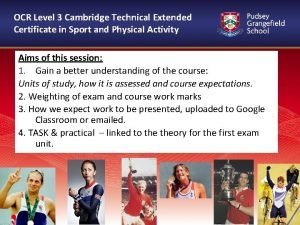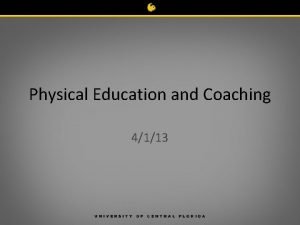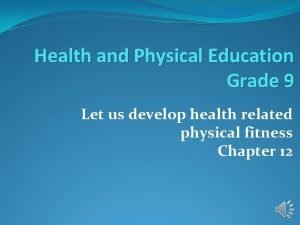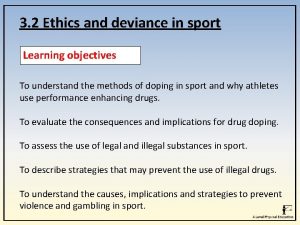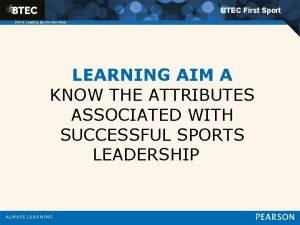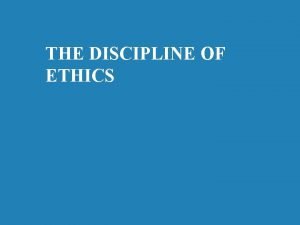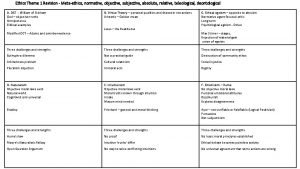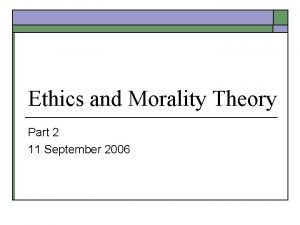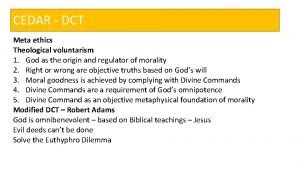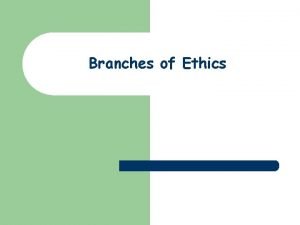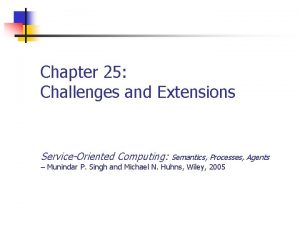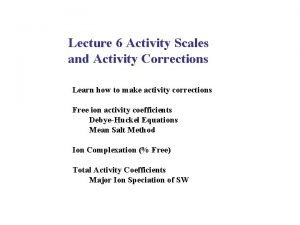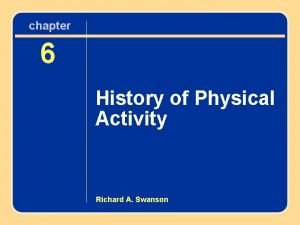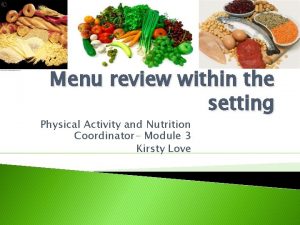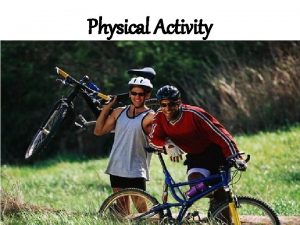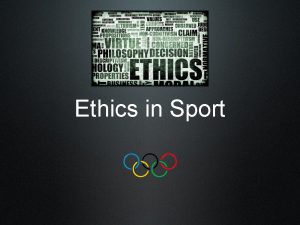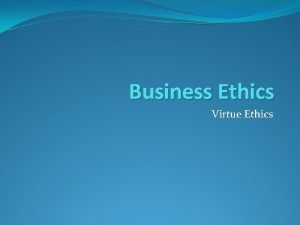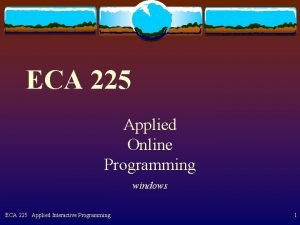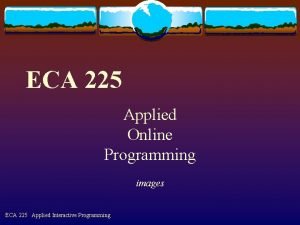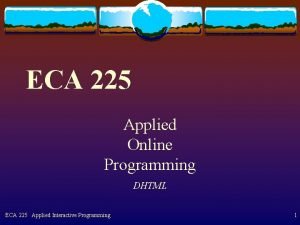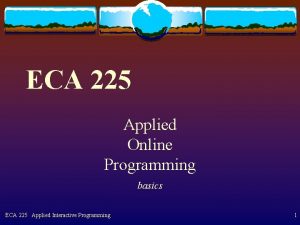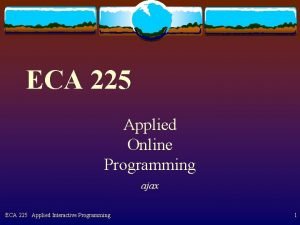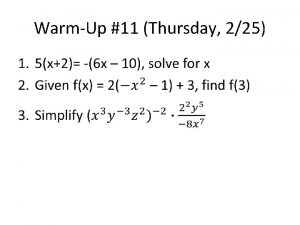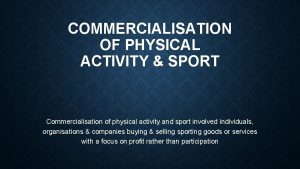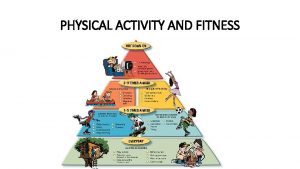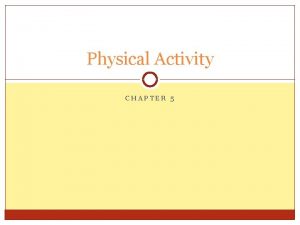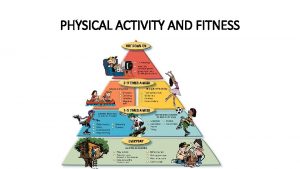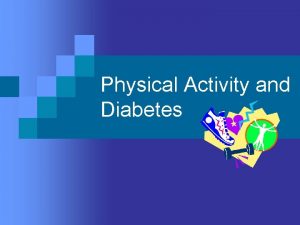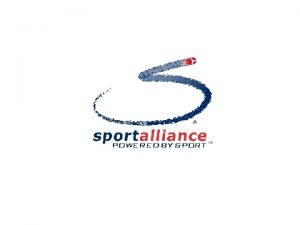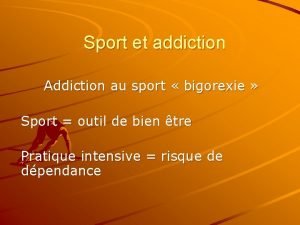Ethics in Sport and Physical Activity 95 225





















- Slides: 21

Ethics in Sport and Physical Activity 95 -225 Fall 2018 Finding Academic Journal Articles Presented By Katharine Ball

Help Is Always Available! October Onwards: Sharon Munro HK Librarian Room 108, 1 st Floor West Building Leddy Library Email: smunro@uwindsor. ca Tel. : (519) 253 -3000 ext. 3850 Until October: Katharine Ball Business Librarian Room 214 B, 2 nd Floor West Building Leddy Library Email: kball@uwindsor. ca Tel: (519) 253 -3000 ext. 3852

Learning Outcome For Today You should be able to find academic journal articles and other resources to support your group debate statement. I will focus mainly on academic journal articles

Academic Journals vs Magazines What kind of articles are published in academic journals? Academic journal articles usually report the results of research in a particular discipline. They tend to be narrow in scope and are written by, and for, professors, researchers, and other professionals. They are a permanent record of scholarship in the discipline and help to promote discussion and analysis in that field. Academic journal articles are usually peer-reviewed or refereed. What does this mean? Articles are evaluated by experts in the field before they are accepted for publication in the journal.

Example of a peer-reviewed journal article

How do you find journal articles on a topic? There are many thousands of academic journals published every year. No one has the time to browse through all of them looking for relevant articles, so: Most academic journals are indexed in discipline-oriented databases, allowing you to search by author, title, and keywords, etc. Journal databases make life much easier!

How do you select which databases to search? You need a database that indexes the journals published in the field in which you are interested – in this case, human kinetics Does anyone know the name of the most human kinetics focused database? Sport. Discus http: //led. uwindsor. ca/sportdiscus

How do you select which databases to search? However, because human kinetics is a very multidisciplinary field, you may also want to search databases in other fields, such as: Psyc. Info psychology Business Source Complete Pub. Med http: //led. uwindsor. ca/psycinfo http: //led. uwindsor. ca/business-source-complete http: //led. uwindsor. ca/pubmed or, broad databases that cover many disciplines, such as: Google Scholar Scopus Web of Science http: //led. uwindsor. ca/google-scholar http: //led. uwindsor. ca/scopus http: //led. uwindsor. ca/web-of-science sports management kinesiology

Where do you find these databases? The Leddy Library (http: //leddy. uwindsor. ca) home page is the basic starting point Go to Search Articles & Research Tools and Select Human Kinetics Sometimes you may need to use the A-Z list (http: //leddy. uwindsor. ca/atoz) On campus: you should be able to access all the databases without signing on Off campus: sign on with your UWindsor ID and email password

Determine the main concepts in your debate statement For Example: Education programs are effective in preventing doping among university athletes What are the main concepts in this statement? Education Programs Doping University Athletes

Identify keywords to search for each concept: synonyms, related, broader, and narrow terms, variant spellings, opposites Education Programs Awareness Campaigns Programs Prevention Education Training Education Programmes Doping Drugs Drug Abuse Substance Abuse Steroids Cocaine Anti-Doping University Athletes College Athletes College Sports University Sports College Sport University Sport Student Athletes Varsity Sport Tertiary Level Athletics Elite Athletes What do you do if you cannot think of any additional keywords? Search the original keywords in the journal databases Look at the results, and jot down the vocabulary you see authors using in their articles It is helpful to do this anyway! You could also try a thesaurus

How to join keywords to make a search statement Boolean Logic OR Returns results that contain any, some, or all of the keywords Capitalization is often optional (but not with Google or Google Scholar) Often used to broaden a search by linking synonyms e. g. fruit OR vegetables e. g. drugs OR doping OR steroids AND Returns only results that contain all of the keywords Capitalization is often optional Narrows your search e. g. rivers AND salinity e. g. athletes AND doping

How to join keywords to make a search statement Truncation Returns results that begin with the same keyword stem The * is the most common symbol used e. g. sport* Will retrieve sport, sports, sporting, etc. e. g. athlet* Will retrieve athlete, athletes, athletics, etc. Phrase Searching Returns results that contain the keywords together Quotation marks are used to denote a phrase e. g. “education programs” e. g. “college athletes”

How to join keywords to make a search statement Using parentheses and the order of operations: the search engine will process what is inside the parentheses first e. g. (drugs OR doping) AND (college athletes OR varsity sport) Going back to our debate statement and the keywords we came up with, can you put together a search phrase? You do not have to use all the keywords at once. Often it is better to do many simpler searches. There will be overlap and duplication in the results, but that can be dealt with. You may want to keep track of your searches, either manually or using search history options within the databases. e. g. “education programs” AND (university athletes OR college sport) AND anti-doping

How to enter keywords into databases If the database you are searching has multiple search boxes, then you can put the keywords for each concept into separate boxes In many databases, there also other ways to help define your search, e. g. limiting by date

If you have not already tried a live search, do it now! Go to the Sport. Discus database http: //led. uwindsor. ca/sportdiscus

What to do with the results of your search Scan the results pages. Re-sort and set/reset limits, if necessary Do a preliminary evaluation of your results. Check the basic citation information presented. Look at the detailed records and read the abstracts, as needed Select the articles that seem to be a good fit with the focus of your debate statement If the results are not that relevant, then re-think your search strategy. Some of the articles are available within the databases as. pdf files. Others, you will have to click on the Get It button to find the article in question. Make notes of additional vocabulary that you might want to incorporate into future searches in this database and others Go to the Print/Save/Email/Download options. You should always save the citations and full-text as you go along!

Format Your Journal Citations in APA Style You can do this in the Save function of many databases, you can use the References function within Microsoft Word, you can use a variety of free software such as Zotero, or you can do this manually. This is the most commonly used guide, from Purdue University: APA Style (https: //owl. english. purdue. edu/owl/section/2/10) E. g. Wippert, P. M. , & Fliesser, M. (2016). National doping prevention guidelines: Intent, efficacy and lessons learned – a 4 year evaluation. Substance Abuse, Treatment, Prevention and Policy, 11, 1 -7. doi: 10. 1186/s 13011 -016 -0079 -9

Other Resources You May Use To Support Your Debate Statement A few examples: Sports statistics and data guide http: //leddy. uwindsor. ca/adc/guides/human-kinetics-sports-statistics-and-data Canadian Newsstand Complete http: //led. uwindsor. ca/canadian-newsstand Sport Canada https: //www. canada. ca/en/services/culture/sport. html Canadian Centre for Ethics in Sport https: //www. cces. ca Canadian Fitness and Lifestyle Research Institute http: //www. cflri. ca World Anti-Doping Agency https: //www. wada-ama. org

Evaluating Resources Found On The Web There will be times when you want to include web resources. Remember that anyone can publish online and there is no editing/quality control function. You must evaluate the web resources yourself. Many University libraries have guides to help you. Here is one from the University of Edinburgh: https: //www. ed. ac. uk/information-services/library-museum-gallery/finding-resources/library -databases/databases-overview/evaluating-websites

Questions?
 Ocr level 3 sport
Ocr level 3 sport Physical activity and sport pedagogy definition
Physical activity and sport pedagogy definition Disadvantages of commercialisation in sport
Disadvantages of commercialisation in sport Physical fitness test grade 9
Physical fitness test grade 9 Deviance in sport
Deviance in sport Macro and micro ethics
Macro and micro ethics Unit 6 btec sport
Unit 6 btec sport What is environmental ethics
What is environmental ethics Briefly recap
Briefly recap Descriptive ethics vs normative ethics
Descriptive ethics vs normative ethics Methaethics
Methaethics Descriptive ethics vs normative ethics
Descriptive ethics vs normative ethics Normative vs descriptive ethics
Normative vs descriptive ethics Meta ethics vs normative ethics
Meta ethics vs normative ethics Meta ethics
Meta ethics Deontology
Deontology Teleological ethics vs deontological ethics
Teleological ethics vs deontological ethics Debye huckel equation
Debye huckel equation Who global strategy on diet, physical activity and health
Who global strategy on diet, physical activity and health A historian of physical activity would look at
A historian of physical activity would look at Chapter 12 physical activity and fitness
Chapter 12 physical activity and fitness Physical activity and nutrition coordinator
Physical activity and nutrition coordinator
